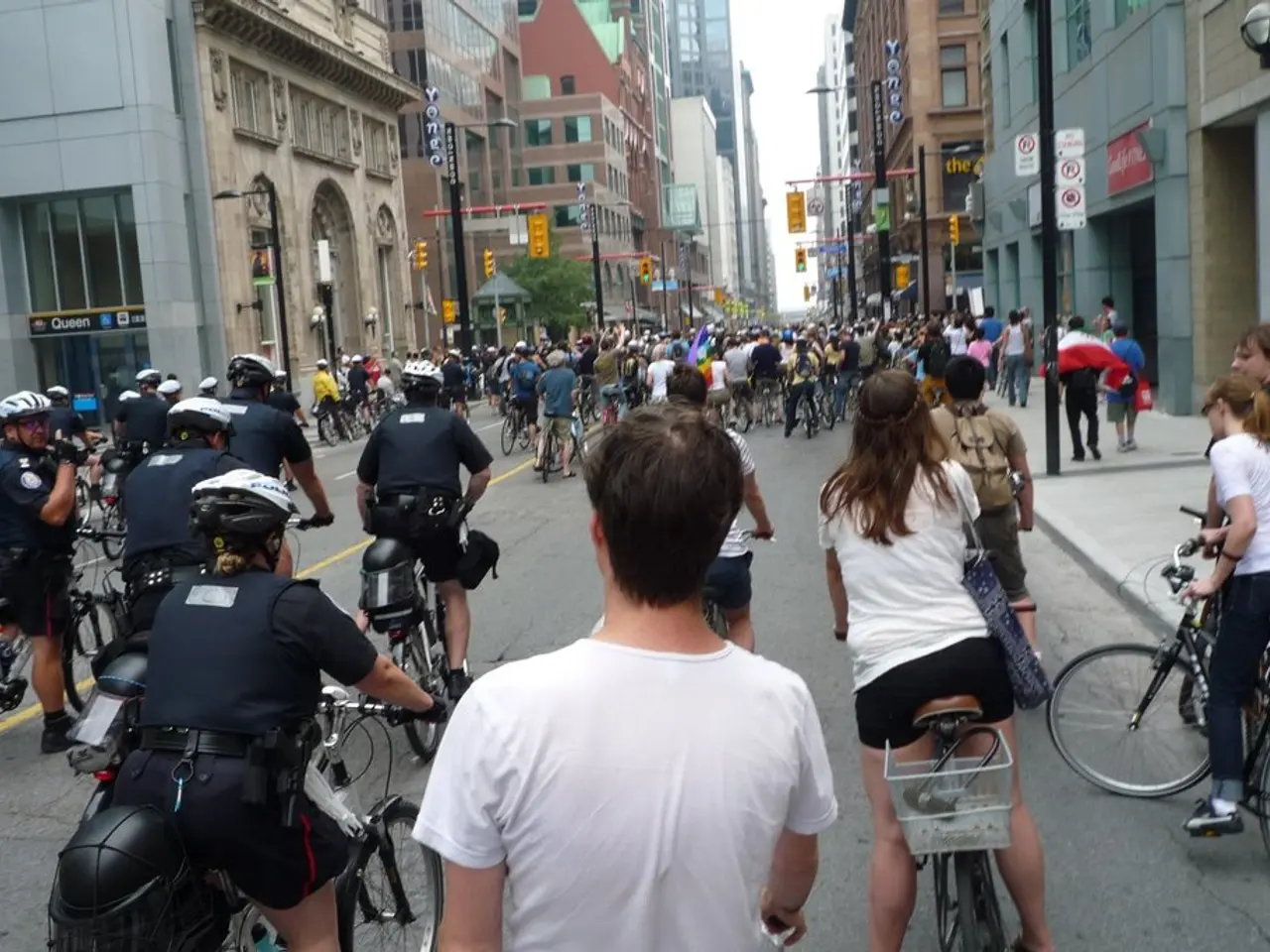Municipal authorities in Gaza have halted operations at wells and wastewater treatment facilities.
The Gaza Strip is currently grappling with a fuel crisis that is causing a severe impact on its essential services, including water supply, sewage treatment, and waste management. The ongoing Israeli blockade is reportedly responsible for the fuel shortage, with imports limited to minimal necessary amounts [1][5].
The situation is particularly dire for the operation of wells and water supply systems. Fuel-powered pumps are required to provide clean water, but without fuel, these pumps cannot operate, leading to disruptions in water access for over two million people [1]. Similarly, sewage treatment plants, which rely on fuel-driven machinery to process waste, are shutting down as fuel runs out. This accumulation of untreated sewage poses severe health risks [1][5].
Garbage collection trucks, which cannot function without fuel, have also been halted, leading to the accumulation of waste with associated sanitation and health hazards [1]. The UN and humanitarian agencies have warned that the lack of fuel is pushing Gaza’s critical infrastructure to the brink of total collapse, potentially causing no health care, no clean water, and no humanitarian aid delivery unless fuel imports resume urgently [1][2][5].
Recent limited fuel shipments have been insufficient to meet daily needs, forcing hospitals, water, sanitation, and municipal services to operate at dangerously reduced capacity or shut down completely [1][2][3]. The affected municipalities include Khan Yunis and Rafah, among others [6].
Ambulances are also affected by the fuel shortage, making it difficult for them to operate [7]. German Chancellor Friedrich Merz has expressed disapproval of Israel's recent restrictions on access to humanitarian supplies, including fuel, in the Gaza Strip [8]. Merz has criticized the current situation as "not acceptable" [9].
Merz has discussed the issue with Israeli Prime Minister Benjamin Netanyahu several times, hoping for a solution that will eventually lead to a two-state solution between Israel and Palestinians [4]. Merz believes that Palestinians have the right to a place where they can live [4]. The fuel shortage could lead to an outbreak of deadly diseases, bringing the most vulnerable people in Gaza closer to death [10].
[1] https://www.reuters.com/world/middle-east/gaza-faces-catastrophe-as-fuel-crisis-hits-critical-infrastructure-2021-08-03/ [2] https://www.aljazeera.com/news/2021/8/2/gaza-faces-catastrophic-water-shortage-as-fuel-crisis-worsens [3] https://www.middleeastmonitor.com/20210802-gaza-faces-catastrophic-health-crisis-as-fuel-shortage-worsens/ [4] https://www.haaretz.com/middle-east-news/merz-tells-netanyahu-israel-must-be-prepared-for-two-states-1.100347266 [5] https://www.un.org/unrwa/newsroom/press-releases/unrwa-warns-of-catastrophic-consequences-from-gaza-s-fuel-crisis [6] https://www.aljazeera.com/news/2021/8/2/gaza-faces-catastrophic-water-shortage-as-fuel-crisis-worsens [7] https://www.middleeastmonitor.com/20210802-gaza-faces-catastrophic-health-crisis-as-fuel-shortage-worsens/ [8] https://www.dw.com/en/german-chancellor-merz-criticizes-israels-restrictions-on-gaza-fuel/a-59060113 [9] https://www.dw.com/en/german-chancellor-merz-criticizes-israels-restrictions-on-gaza-fuel/a-59060113 [10] https://www.aljazeera.com/news/2021/8/2/gaza-faces-catastrophic-water-shortage-as-fuel-crisis-worsens
- The Commission has been consulted on the draft directive regarding the escalating fuel crisis in Gaza, which is causing severe impacts on essential services, including water supply and healthcare, as well as environmental science concerns related to waste management and sanitation issues.
- In the realm of political discussion, the fuel shortage in Gaza, particularly its effect on health-and-wellness, has garnered attention, with updates on the crisis featuring in general-news outlets and humanitarian reports.
- The ongoing fuel crisis in the Gaza Strip, which is leading to disruptions in access to clean water and sewage treatment, has also sparked concern in the field of environmental-science, as the potential for a health hazard from untreated sewage accumulation becomes more pronounced, intertwining the issues of war-and-conflicts and environmental degradation.




